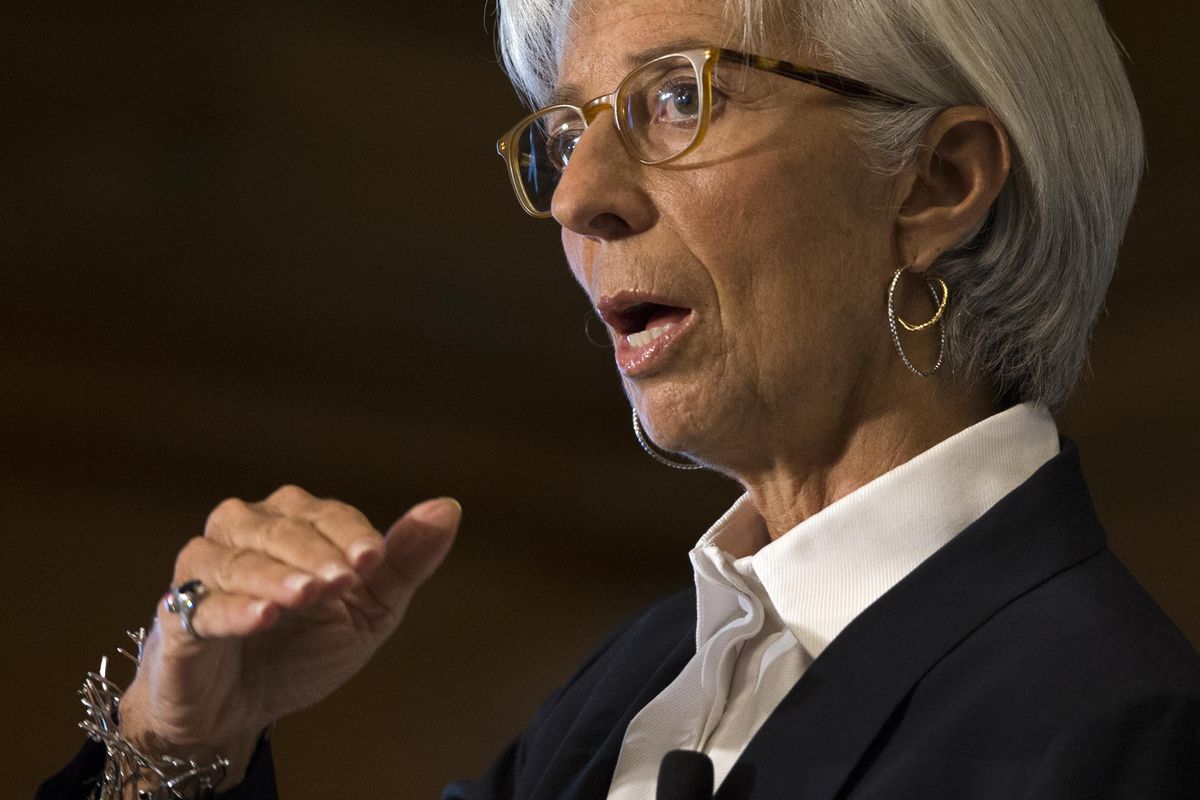IMF chief says global economy likely to be weaker this year

WASHINGTON – The head of the International Monetary Fund said Wednesday that global growth will likely be weaker this year as the world economy confronts a host of problems, including a refugee crisis in Europe, an economic slowdown in China and a pending rise in U.S. interest rates.
IMF Managing Director Christine Lagarde predicted a moderate rebound in growth in advanced economies such as the United States, Europe and Japan. But emerging economies will experience a fifth consecutive year of slowing activity, she said.
Lagarde said potential growth is being held back by low productivity, aging populations and lingering problems from the 2008 financial crisis such as high debt levels. She said it will be critical to properly manage the transition in China to consumer-led growth and the pending move by the Federal Reserve to higher interest rates.
In a speech previewing next week’s annual meetings of the 188-nation IMF and its sister lending agency, the World Bank, Lagarde said that currently global growth is “disappointing and uneven,” with many emerging market nations losing revenue from falling prices of commodities such as oil.
Lagarde said that the IMF would release its updated economic forecasts next week. While she did not reveal specific figures, she said growth was expected to be weaker this year than last year, with a modest acceleration expected in 2016.
The global economy expanded by 3.4 percent in 2014. The IMF’s previous forecast was for growth of just 3.3 percent this year.
In her speech, Lagarde called India a bright spot for the global economy. But she noted that Russia and Brazil are facing “serious economic difficulties,” with growth also slowing sharply in many Latin American countries.
The meetings next week will be held in Lima, Peru, marking the first time in 48 years that the annual meetings of the two international lending agencies will be held in Latin America.
Lagarde said that China’s transition from export-led growth to a focus on domestic-led growth presented a number of challenges for Chinese officials. They are faced with a need to implement difficult reforms, while at the same time protecting growth and financial stability.
Lagarde noted that China consumes 60 percent of the world’s production of iron ore. But as it switches to lower production, its demand for various commodities will decline.
“This will contribute to what could be a prolonged period of low commodity prices,” she said.
The second major transition the world will have to manage is a change in interest rate policies in the United States, as the Fed prepares to raise rates for the first time in nearly a decade, she said.
“Rising U.S. interest rates and a stronger dollar could reveal currency mismatches, leading to corporate defaults,” Lagarde said.
In June, Lagarde had urged the Fed to delay a rate hike until 2016. She argued that the risk of raising rates prematurely – and damaging the U.S. and global economies – outweighed the risk of waiting too long and allowing inflation to creep up.
Lagarde, interviewed by CNBC on Wednesday, was asked about those earlier concerns. She did not repeat her previous comment that the Fed should wait until 2016 to raise rates, but she underscored the importance of being certain of the decision.
“Let’s make sure it is data-dependent,” Lagarde said.
If the data does not support a December move, then the Fed should wait, she said.